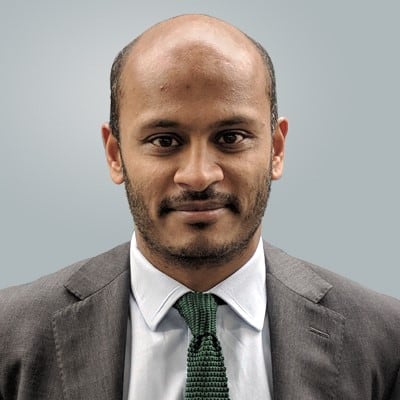Customer Logins
Obtain the data you need to make the most informed decisions by accessing our extensive portfolio of information, analytics, and expertise. Sign in to the product or service center of your choice.
Customer Logins
BLOG
Oct 25, 2017
China announced the members of its Politburo Standing Committee (PBSC)
On 25 October the Communist Party of China announced the members of its Politburo Standing Committee (PBSC), the seven most powerful political positions in China. Five of the seven current members, including top disciplinary watchdog Wang Qishan who led China's anti-corruption campaign as one of President Xi Jinping's closest allies, have retired. OnlyPresident Xi Jinping and Premier Li Keqiang will remain for another five-year term.
The other five members of the new PBSC are:
- Vice-Premier Wang Yang, who is reportedly favoured for promotion to executive vice-premier at the parliamentary session in March 2018;
- Shanghai Party Secretary Han Zheng;
- Director of the Party General Office Li Zhanshu;
- Director of the Party's Central Organisation Department Zhao Leji; and
- Director of the Party's Central Policy Research Office Wang Huning.
Two senior officials who were widely anticipated as successors to Xi in 2022 - Guangdong Party Secretary Hu Chunhua and Chongqing Party Secretary Chen Min'er - have not been included.
Significance
The new PBSC line-up reflects a surprising adherence to established conventions regarding retirement age and promotion with the party. Without Wang Qishan, who was rumoured to be granted office beyond the conventional retirement age of 68, President Xi's authority on the PBSC will be more constrained than expected. However, with only one member of the Standing Committee, Shanghai Party Secretary Han Zheng, considered to be in the "Jiang Clique" - a group within the CCP close to former president Jiang Zemin, no one is likely to openly challenge the 'core' president, whose political doctrine (The "Xi Jinping Thought") will be enshrined in the Party's constitution and attributed to him by name, an honour granted only to revolutionary leaders Mao Zedong and Deng Jioaping.
Also, without Wang Qishan, China's ferocious anti-corruption campaign is likely to become less intense, with fewer Central Committee members targeted. Without clear candidates for succession, Xi has kept his options open at the end of his second term - including the possibility of a rare third term. China's broad policy focus will be sustained, including gradual liberalisation of the renminbi's trading band, its internationalisation through the "Belt and Road Initiative", and reduced incentives for bank funding of heavy industries such as steel manufacturing. Policy stability will be underscored by political alignment between Vice-Premier Wang Yang and Premier Li Keqiang.
Keerti Rajan, Head of Desk, Country Risk - Asia-Pacific at IHS Markit
Posted 25 October 2017
{"items" : [
{"name":"share","enabled":true,"desc":"<strong>Share</strong>","mobdesc":"Share","options":[ {"name":"facebook","url":"https://www.facebook.com/sharer.php?u=http%3a%2f%2fprod.azure.ihsmarkit.com%2fmarketintelligence%2fen%2fmi%2fresearch-analysis%2fchina-announced-the-members-of-its-politburo-standing-committee-pbsc.html","enabled":true},{"name":"twitter","url":"https://twitter.com/intent/tweet?url=http%3a%2f%2fprod.azure.ihsmarkit.com%2fmarketintelligence%2fen%2fmi%2fresearch-analysis%2fchina-announced-the-members-of-its-politburo-standing-committee-pbsc.html&text=China+announced+the+members+of+its+Politburo+Standing+Committee+(PBSC)","enabled":true},{"name":"linkedin","url":"https://www.linkedin.com/sharing/share-offsite/?url=http%3a%2f%2fprod.azure.ihsmarkit.com%2fmarketintelligence%2fen%2fmi%2fresearch-analysis%2fchina-announced-the-members-of-its-politburo-standing-committee-pbsc.html","enabled":true},{"name":"email","url":"?subject=China announced the members of its Politburo Standing Committee (PBSC)&body=http%3a%2f%2fprod.azure.ihsmarkit.com%2fmarketintelligence%2fen%2fmi%2fresearch-analysis%2fchina-announced-the-members-of-its-politburo-standing-committee-pbsc.html","enabled":true},{"name":"whatsapp","url":"https://api.whatsapp.com/send?text=China+announced+the+members+of+its+Politburo+Standing+Committee+(PBSC) http%3a%2f%2fprod.azure.ihsmarkit.com%2fmarketintelligence%2fen%2fmi%2fresearch-analysis%2fchina-announced-the-members-of-its-politburo-standing-committee-pbsc.html","enabled":true}]}, {"name":"rtt","enabled":true,"mobdesc":"Top"}
]}




